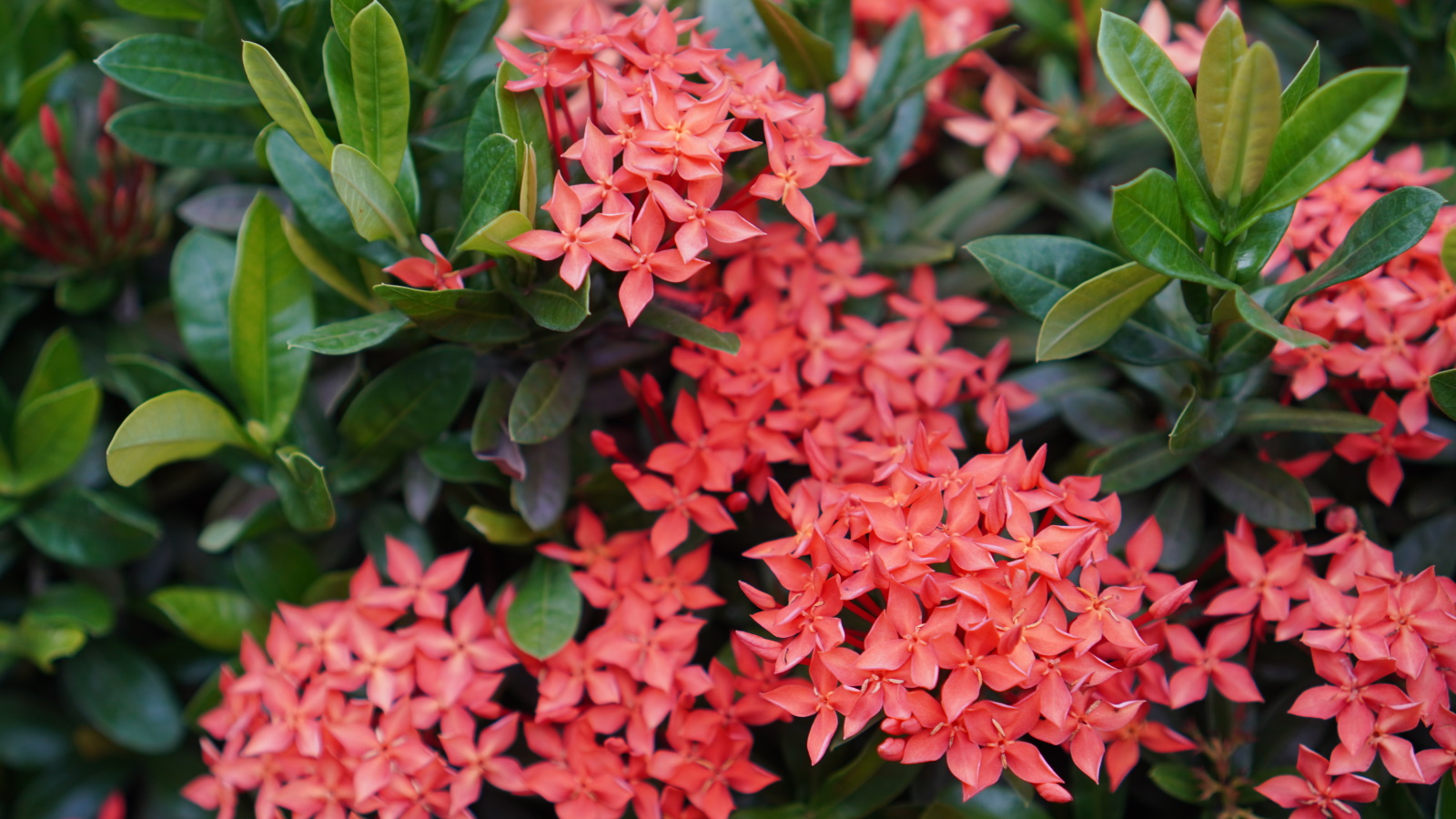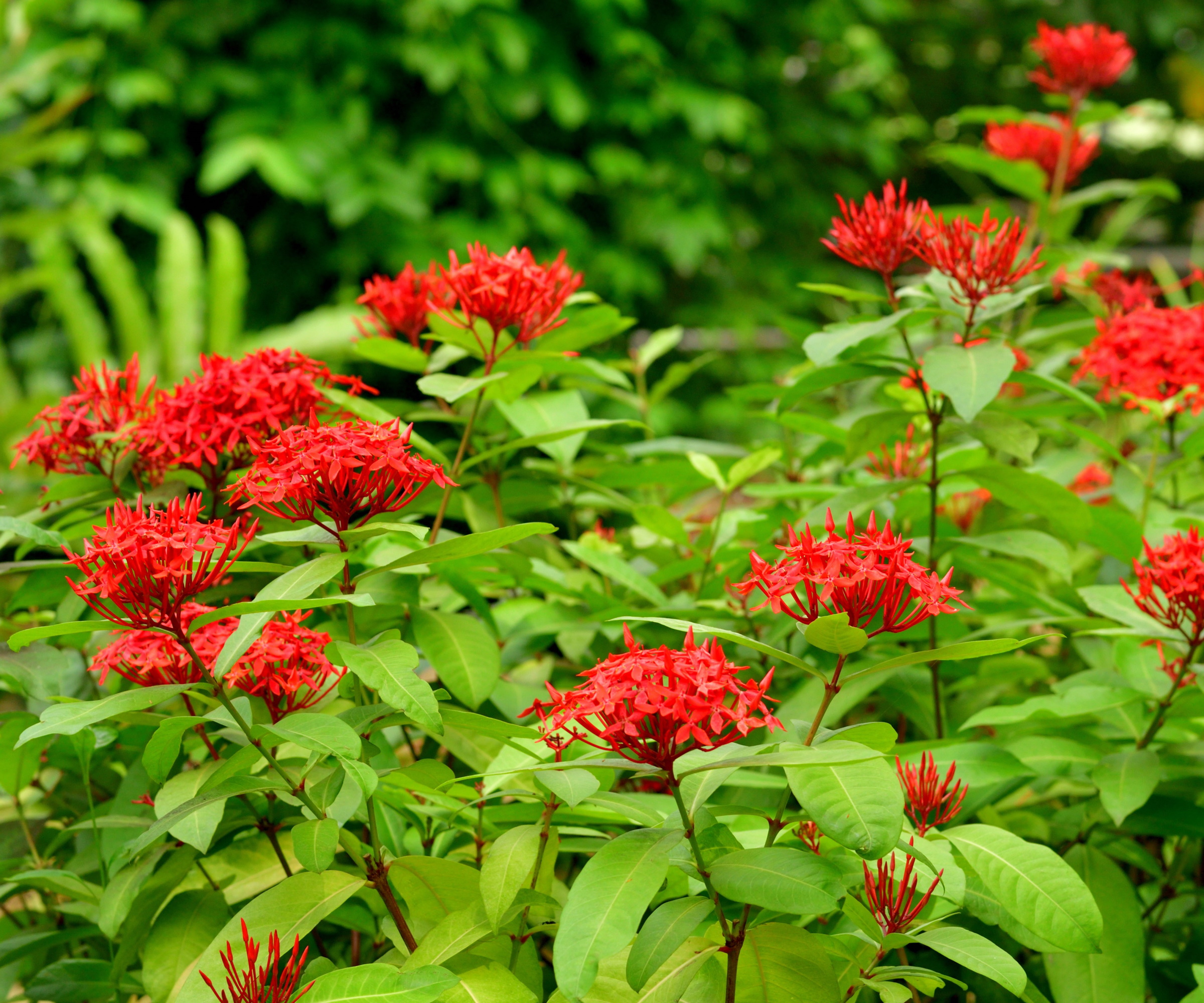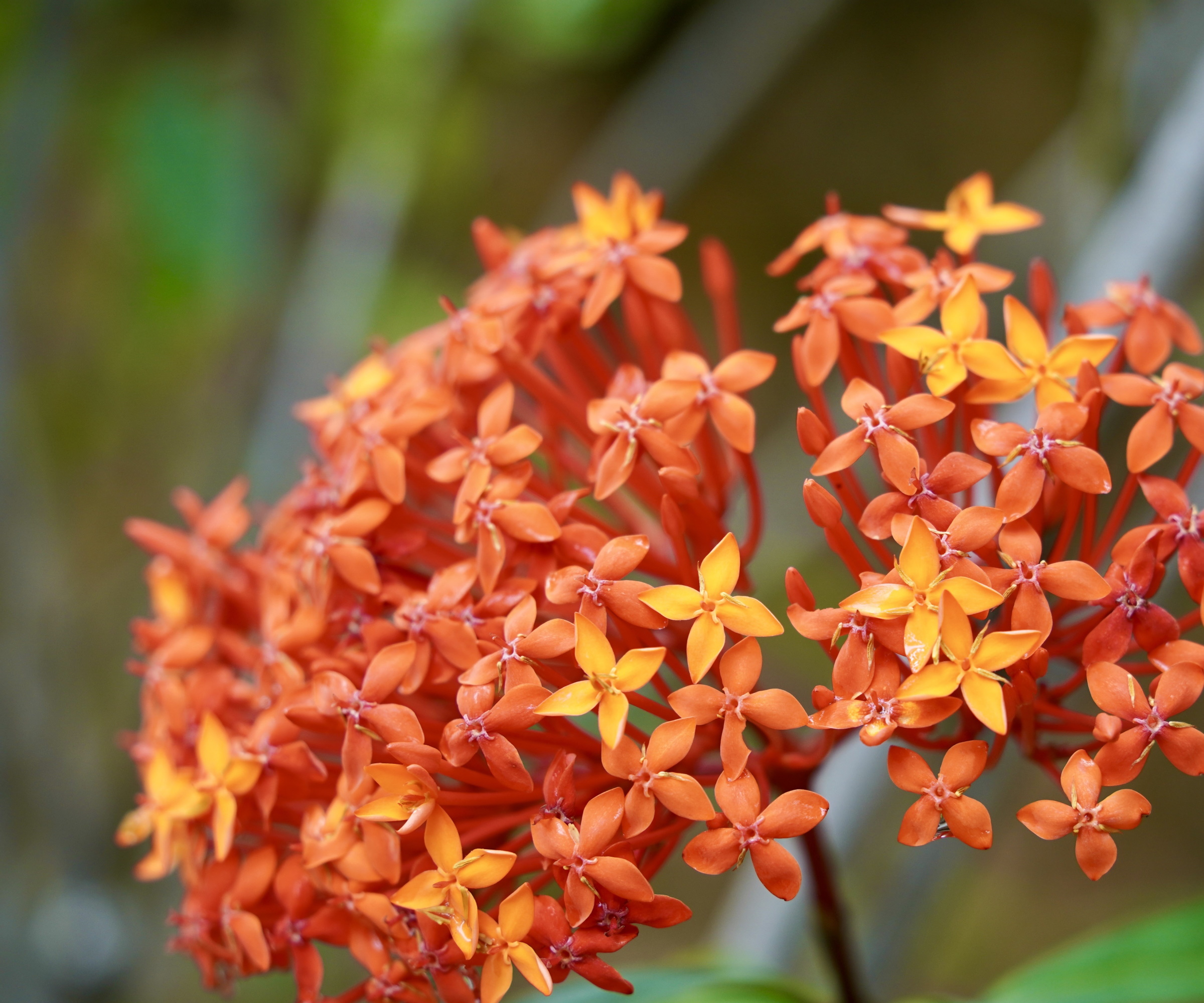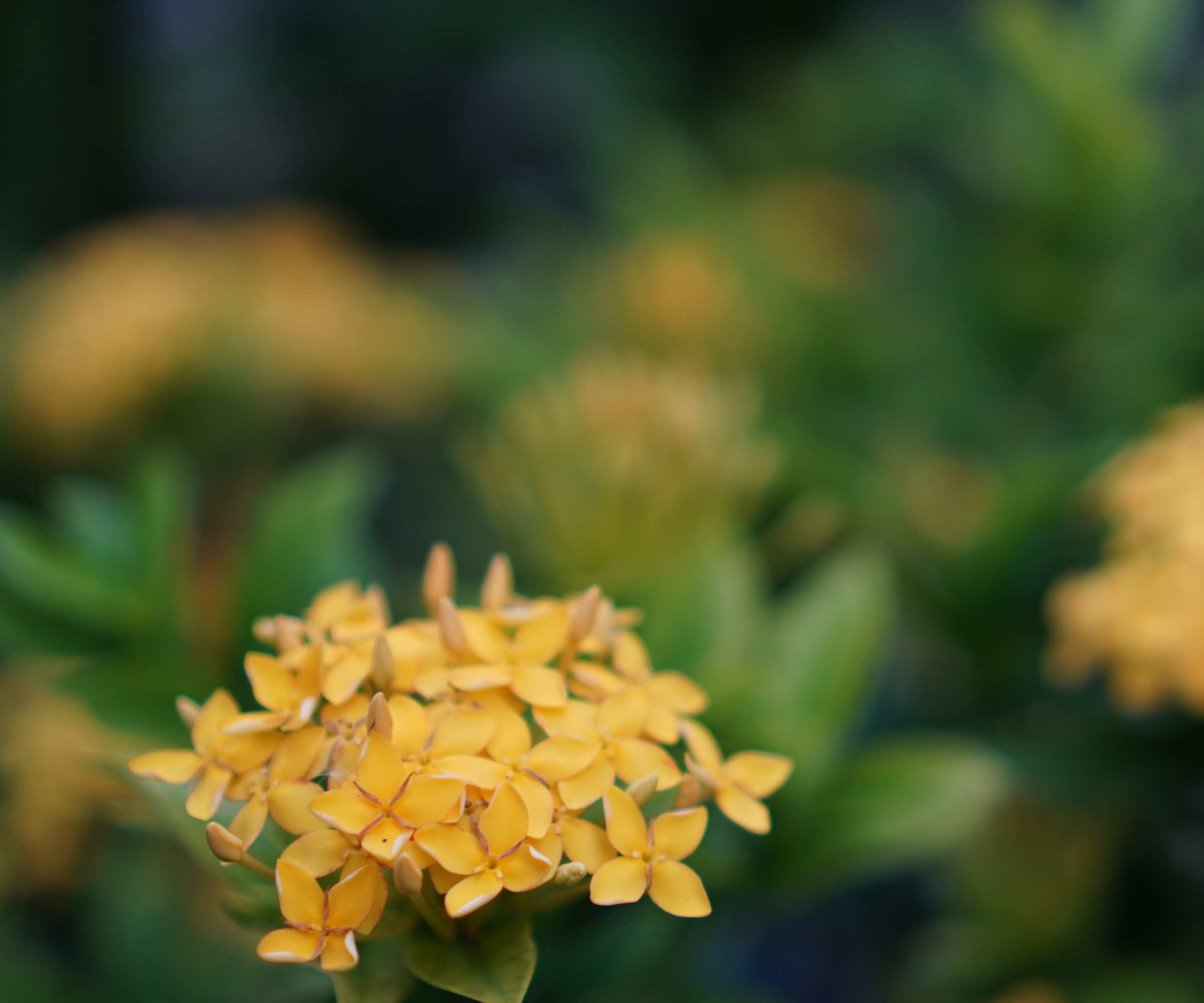
Ixora plants bring a tropical look to any space, whether planted in the backyard or grown in a container. If you are thinking about backyard ideas to incorporate tropical garden ideas this year, or perhaps you want a new shrub that can thrive in full sun, ixora should surely be a consideration for you.
For gardeners looking for a burst of color, few plants can rival ixora. With vivid blooms and glossy-green foliage, this is a shrub that demands attention. There are over 500 known ixora species most of which are native to tropical regions of Asia. Commonly known as the 'West Indian jasmine' or 'flame of the woods', ixora belongs to the Rubiaceae plant family, sharing characteristics with the gardenia and coffee plant genera.
Ixora are evergreen shrubs, holding on to attractive lush foliage in warmer regions, and producing clusters of star-shaped flowers in hues of red, yellow and pink throughout the growing season. So, for a splash of color in your borders this year, read on to learn how to grow and care for Ixora.

How to grow ixora
Ixora plants are attractive evergreen shrubs, putting on a superb display of blooms through the spring and summer months. For those seeking a tropical flowering shrub, growing ixora in the yard will certainly add color and impact.
Key facts to know about ixora

Ixora will grow happily outdoors in US hardiness zones 9 - 11, 'doing well in the heavy humidity of the south,' says Tricia Hunt, plant expert and owner of Millstone Nursery. These shrubs 'are not winter hardy below 50 degrees,' Tricia continues, but this is not to say you cannot grow ixora if you live in a cooler zone.
While ixora thrives in tropical and subtropical climates, they can be grown as container plants and moved indoors in colder regions during the winter months. Doing so will add interest inside the home, with attractive leathery-green foliage popular with indoor gardeners.
Ixora are 'heavy bloomers,' Tricia says, 'making a nice filler for containers with dense, compact, deep-green foliage and bright blooms.'
Whichever you opt for, ixora plants require full sun exposure, growing best in situations with at least six hours of sunlight each day. Moving your ixora container to a sheltered, sunny spot is a good idea, especially in cooler zones.
'An added benefit of growing ixora,' Tricia says, 'is that this shrub is great for attracting hummingbirds and attracting butterflies,' which are all drawn to 'colorful blooms that remain on the plant for long periods of time.'
Ixora live plants are available to order online from Amazon.
This ixora 'Maui red' plant has beautiful red flowers blooming throughout the year, adding vibrant color to outdoor spaces.
How to grow ixora

- Soil: 'Ixora thrives in warm, tropical climates and prefers well-drained, acidic soil,' says Tatiana Anderson, plant expert and co-founder of Top Tropicals. Use a free-draining soil mix, adding perlite, sand or grit to improve the drainage. This is particularly important in containers to prevent waterlogging. If you live in an area with alkaline soil, consider conditioning your soil with something like this Soil Acidifier from Amazon, which will help your ixora shrub to grow well.
- Light: 'Optimal growth conditions are achieved when the plant is situated in an area receiving partial to full sunlight, fostering robust growth and prolific flowering,' says Tatiana. Whilst ixora will grow in areas of low light, planting in the shade will result in a lack of flowers. Remember that this plant is endemic to tropical regions, and thrives if grown in full sun.
- Watering: Established ixora plants 'demonstrate a noteworthy degree of drought resistance,' Tatiana continues. 'Adequate moisture is however vital for the health of your ixora shrub, but caution must be exercised to prevent waterlogged conditions,' Tatiana says. 'Excessive moisture can lead to leaf chlorosis,' with unattractive and yellowing foliage. Striking the right moisture balance will ensure that your shrub flourishes, 'allowing it to showcase its brilliant colors and lush foliage in a tropical garden setting.'
- Fertilizing: 'Feed ixora with a balanced, slow-release fertilizer during the growing season to promote healthy foliage and abundant flowering,' Tatiana says, using something like this slow-release feed from Walmart. Additionally, 'incorporate liquid fertilizers year-round if growing ixora in zones 9 - 11, to help sustain the overall health and vigor of your shrub.'
- Pruning: 'Ixora stand out as excellent hedge plants, owing to their bushy nature and the ability to produce an abundance of flowers on new growth,' Tatiana says. 'Whether you are cultivating a hedge or tending to a single, free-standing ixora plant, regular pruning is essential to prevent branches from becoming leggy.' Focus on the 'removal of dead or diseased branches, and shape the plant strategically to promote optimal air circulation,' Tatiana continues.
- Additional Notes: If you are growing ixora in a container in a cooler zone, remember to regularly water and feed throughout the growing season, and protect your tender shrub in fall. When the temperature begins to drop, move the container indoors until spring.
This soil acidifier is formulated to decrease alkalinity and provide acid loving plants with the nutrients they need, ensuring that your can enjoy a healthy and vibrant plant display.
FAQs
Can ixora be grown in containers?
Yes, ixora can be grown in containers, forming attractive compact shapes and flowering all summer long. Ensure that the container is filled with free-draining soil to prevent waterlogging. Growing ixora in containers is a suitable option for those living in cooler zones, allowing you to move your tender ixora shrub indoors during the winter.
When is the best time to plant a new ixora shrub?
It is best to plant ixora in the springtime, giving your new shrub time to establish before the heat of summer. Planting in the fall can also be successful, but new plants will not react well to cooler temperatures when they are not yet established.
Growing ixora will add dazzling color to any outdoor space. Try planting different species in different pots, for a rainbow-like effect in your yard, using different colors like this yellow ixora, available from Amazon. Consider also learning how to grow the firecracker plant, which will fill your yard with even more vibrant blooms this year and prove to be a popular addition when hummingbirds, particularly during the hummingbird migration.







